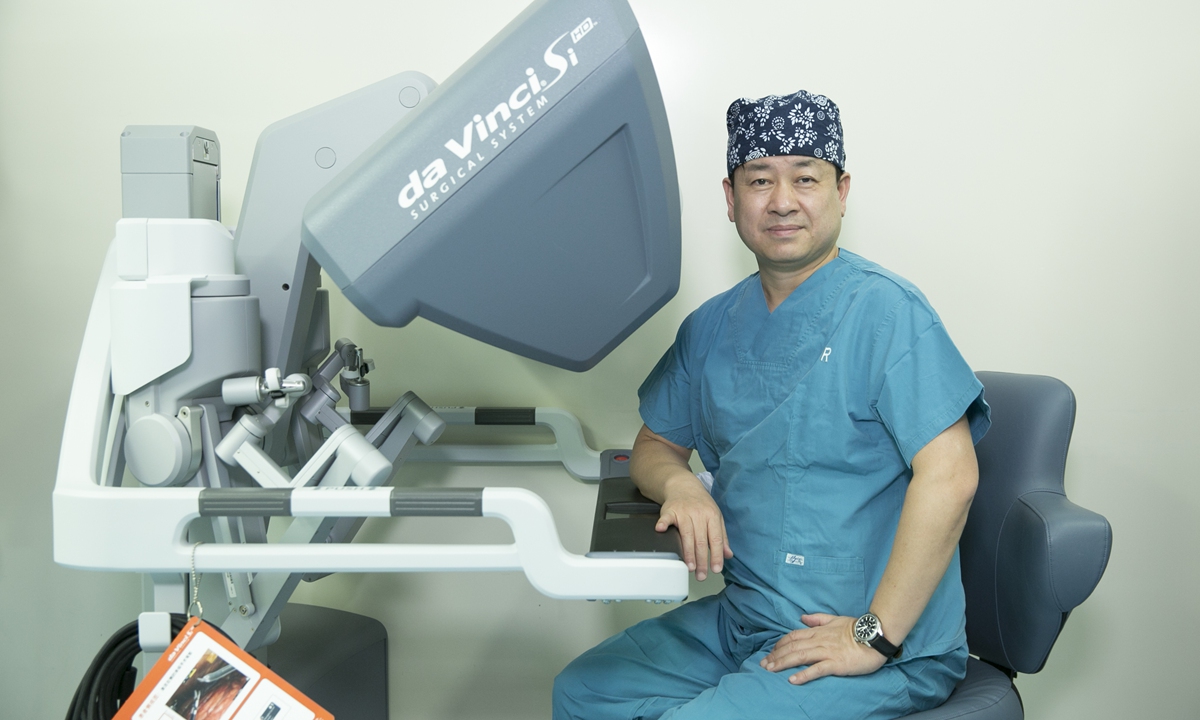SOURCE / PRESS RELEASE
A future where robots perform surgery ‘within reach’: expert

Professor Zhu Gang, the director of surgery and urology at Beijing United Family Hospital Photo: Courtesy of Beijing United Family Hospital
"Given time, robots autonomously performing surgeries is totally achievable in the future," said Professor Zhu Gang, the director of surgery and urology at Beijing United Family Hospital, after attending the Worldwide Robotic Surgery Events (WRSE12) on Wednesday, where a robotic surgery he performed was livestreamed.Being the exclusive invitee from outside Europe and the US at the WRSE12, an event that presented world-class urological surgeries for educational purposes, Zhu demonstrated the complete procedure of a "robot-assisted radical prostatectomy with holographic navigation and frozen section assessment of surgical margin."
Surgical robots offer numerous advantages and are undoubtedly a future trend in surgery, Zhu said. Surgical robots enhance a surgeon's "abilities," significantly improving surgical precision, safety and flexibility, while also substantially reducing surgical complications in complex surgeries, he said.
Compared with open surgeries, robotic surgeries have greatly reduced intraoperative blood transfusion rates by 70 percent, lowered the probability of complications within 30 days by 39 percent, and also resulted in an average reduction of 1.9 days in patient hospitalization time, noted the professor based on an analysis of clinical research encompassing surgeries performed from 2010 to 2020, which included colon procedures, prostate removals and partial kidney surgeries.
Surgical robots are also credited with extending the professional lifespan of medical experts. "Training a doctor is not easy, and nurturing a mature surgeon is even more challenging, typically taking 25 to 30 years. As doctors age, their physical abilities gradually decline. Surgical robots conveniently compensate for these physical limitations," said Zhu.
Regarding the question of whether "doctors will be replaced by AI," Zhu holds an optimistic attitude that looks forward to a future where robots might assume certain medical responsibilities. "Although I am a doctor, I also hope to be replaced by robots someday. Currently, they cannot entirely replace doctors. But I believe that given time, robots autonomously performing surgeries is totally achievable in the future."
Beijing United Family Hospital, where Zhu works, introduced robotic surgical systems as early as 2015, making it one of the pioneering institutions in China to embrace this technology.
Zhu pointed out that while significant progress has been made in this field, there is still some gap between China and developed countries, as evident from WRSE12.
However, China is actively working to catch up. In January, the Ministry of Industry and Information Technology, along with 17 other government departments, jointly released a notice on the implementation of the "robotics+" application action plan, which encourages eligible hospitals to use robots for precise minimally invasive surgeries, establish standardized robotic surgery operating rooms and research standardized clinical applications for surgical robots.
"While the mainstream international choice of surgical robot is the Da Vinci robotic surgical system, Chinese research institutions and businesses are swiftly narrowing the gap with their third-generation products," said Zhu.
China currently ranks first in the number of companies involved in the development of surgical robots.



